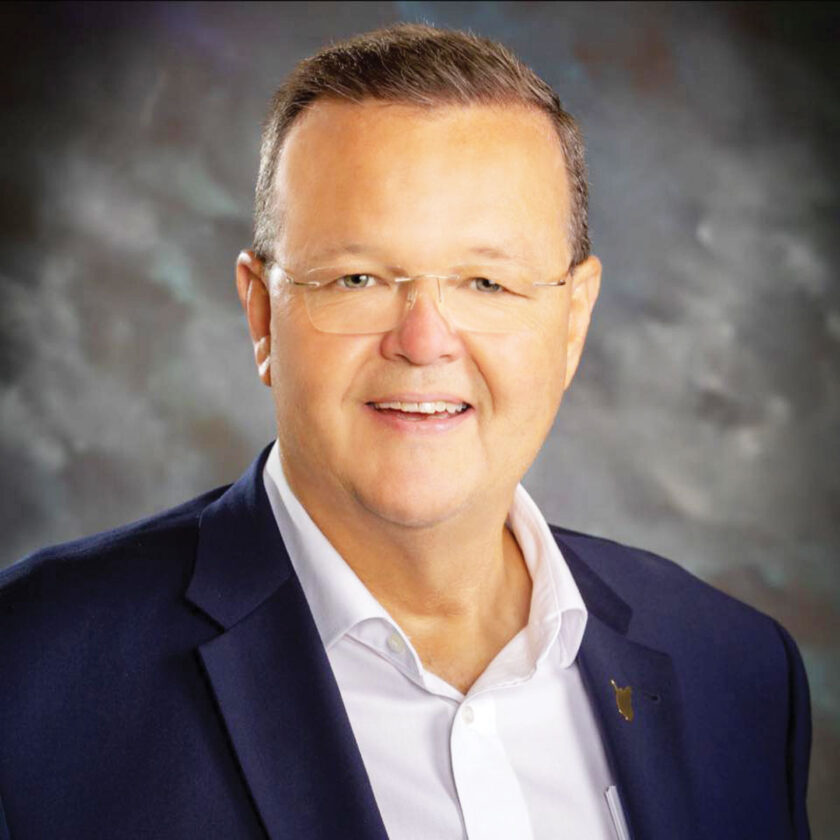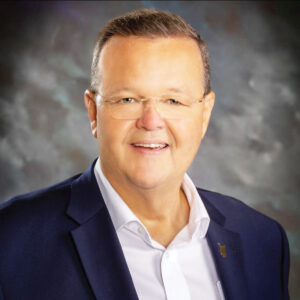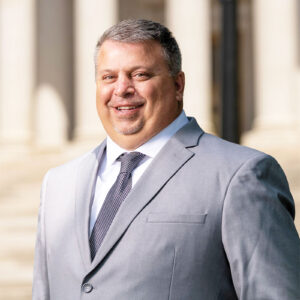Sealing the Deal: Republican candidates for West Virginia Secretary of State discuss agendas
- Former Morgan/Berkeley County delegate Ken Reed (Photo courtesy of WV Legislative Photography)
- Former delegate Doug Skaff (Photo courtesy of WV Legislative Photography)
- EDA Executive Director Kris Warner (Photo Provided)
- Putnam County Clerk Brian Wood (Photo Provided)

Former Morgan/Berkeley County delegate Ken Reed (Photo courtesy of WV Legislative Photography)
CHARLESTON — Among the many duties of the West Virginia Secretary of State is serving as the keeper of the State Seal, the iconic image of the farmer and coal miner flanking a stone with the state’s founding carved into its face.
Four Republican candidates for Secretary of State hope to be the next keeper of that seal.
Secretary of State Mac Warner is wrapping up his second four-year term since first being elected in 2016 and defeating previous two-term Democratic Secretary of State Natalie Tennant. Warner is now one of several GOP candidates for governor of West Virginia.
The secretary of state is the state’s chief elections officer and business registrar, keeper of executive branch documents, appointments and other official records. The office also oversees charities and nonprofits, administers the Uniform Commercial Code, and manages legislative and emergency rules.
The GOP field includes a former member of Democratic Party leadership in the Legislature, a former lawmaker and county commissioner, a long-time county election official, and the brother of the current Secretary of State who has spent the last several years in economic development.

Former delegate Doug Skaff (Photo courtesy of WV Legislative Photography)
EDITOR’S NOTE: Listen to the full interviews with the four Republican candidates for secretary of state on the Mountain State Views podcast, available on most major podcast platforms.
FROM BLUE TO RED
Doug Skaff announced his party switch from Democrat to Republican and his candidacy for secretary of state last October, giving the run a great deal of thought.
“Out of all the offices, this is one that’s always intrigued me and excited me,” Skaff said.
Skaff was elected to the House of Delegates in 2008 representing parts of Kanawha County and served two terms, running and winning again in 2018. The House Democratic Caucus chose Skaff as its minority leader in 2020. Following an August special session, Skaff stepped down as House Minority Leader and resigned from his House seat in September.

EDA Executive Director Kris Warner (Photo Provided)
Skaff said much of his effort as secretary of state will be focused on elections, election integrity and security. Skaff would like to work with schools with students eligible to vote to encourage them to be poll workers. With people using smartphones, Skaff would like to put more of the abilities of the secretary of state’s office in people’s pockets for election information and verified election results.
“The one thing that’s not there is adequate information from the Secretary of State’s office. It’s not easily accessible from your cell phone,” Skaff said. “I think we can do a better job. We can create an app. Where do people turn for election day results? It’s not the Secretary of State site, and that should be where they go to get the results.”
Skaff wants to continue to work with county clerks on voter roll clean-up and maintenance, removing the deceased, convicted felons, and people who have moved and not updated their addresses with county clerks. According to the Secretary of State’s Office, more than 400,000 names have been removed from voter rolls by county clerks since 2017.
While the office has a robust IT team and cybersecurity protections, Skaff would like to see the office partner with Marshall University and its new Institute for Cyber Security to develop proactive ways to stay ahead of bad actors.
“We have a chance to partner with Marshall University when it comes to cybersecurity,” Skaff said. “Why can’t we lead the world in election cybersecurity, having safe, secure elections right here out of Huntington? I think that is one thing I want to partner with.”

Putnam County Clerk Brian Wood (Photo Provided)
Some of Skaff’s political opponents have criticized him for supporting House Bill 2814 in 2021. The bill would have allowed for no-excuse absentee ballot voting, the mailing of absentee ballot applications to all registered voters, absentee ballots to be presented to county clerks on Election Day, the hand-delivering of up to 10 absentee ballots at one time (ballot harvesting), absentee ballot drop-off boxes, and the elimination of signature match requirements for ballots among other things.
Skaff has since backed away from supporting those measures, but during the first year of the COVID-19 pandemic, Skaff said some of those proposals made sense at the time, such as mailing all voters absentee ballot applications – something that Secretary of State Mac Warner did for the 2020 primary that was moved from May to June following a shutdown of non-essential businesses. The bill was reintroduced again in 2022, but by then Skaff said he did not support it.
“It was during COVID. We had to do a lot of things differently during COVID, but that’s not something I’m for,” Skaff said. “We didn’t know how long COVID was going to drag on for. The last thing you want to do is make it harder for people to get out and vote because of COVID … I had a laundry list of bills that just automatically renew every year. That was not something I advocated for, did not push for and did not want to see that run.”
Skaff is the president of HD Media, and he owns and manages his family’s businesses. Coming into the Secretary of State’s Office, Skaff said he wants to continue to streamline the services of the Business Division. He also wants the office to be at the forefront of protecting existing businesses in the state.
Skaff would like to see some changes to the business registration fees that businesses have to pay the Secretary of State’s Office annually. He also proposed creating a $50 million fund for small businesses in the state to be able to tap into during hard economic times or if they are at risk of closing.
“If you’re in a business getting ready to close, you’ve been here for x-amount of years and you’re just going through some hard times or changing times and you need some help, we should have a lifeline there for you before you close as your last resort,” Skaff said.
BROTHER’S KEEPER
Kris Warner is the executive director of the state Economic Development Authority under Gov. Jim Justice. He served four years as former President Donald Trump’s appointee as state director of the U.S. Department of Agriculture’s Rural Development office in West Virginia from 2017 to 2021. Kris is a former chairman of the West Virginia Republican Party in the mid-2000s. He is also the brother of Secretary of State Mac Warner.
Warner is proud of the foundations he helped lay in the 2000s that led to a Republican supermajority in the Legislature, all of West Virginia’s statewide offices being led by Republicans, and the impending retirement of U.S. Sen. Joe Manchin, the last elected Democratic member of the state’s congressional delegation.
One of the reasons Warner is running is to ensure that Skaff – a former Democrat-turned-Republican – doesn’t succeed in securing the office.
“I can’t allow someone to step in and try to hoodwink the voters of this state and the people that have worked so hard in the Republican party to just run for the most important office as it relates to election security,” Warner said. “Safe, fair, honest, elections are very important to us, and I recognize that.”
Warner wants to continue what he sees as the good work of his brother, Mac Warner, over the last nearly eight years, including working with existing staff and systems. That includes continuing to work with county clerks on voter roll clean-up.
“Cleaning of the voter rolls is extremely important, and it’s something that can’t be left where it is today,” Warner said. “We just can’t rest on the fact that there are those 400,000 names that have been reduced.”
The influence of social media companies on elections is also of great concern to Warner. He believes these companies need to treat all political candidates the same and should file campaign finance reports showing what candidates and committees spend on these platforms.
“If you’re throttling a candidate’s webpage 30 days before the election and then restoring it two days later and saying, ‘I’m sorry, we shouldn’t have de-platformed you,’ that’s a problem,” Warner said. “Here in West Virginia, I think we’ve got to be on our toes, and that’s got to be a priority.”
Warner also believes that poll workers in all 55 counties should be paid the same rate, and that beyond helping with recruitment of poll workers, Warner believes that the Secretary of State’s Office should help counties foot the bill for paying poll workers.
“Quite frankly, the Secretary of State’s Office should be reimbursing the county commissions; those that pay the poll workers,” Warner said. “It should be a reimbursed amount. That shouldn’t be something that falls on Gilmer County or Clay County or Webster County the same as it would fall on Kanawha County or Berkeley County being much larger counties. So, that’s something that I would like to do.”
Warner also wants to continue the work the office has done to automate frequently asked questions using the SOLO, an AI chatbot tool. But he also doesn’t want to lose the in-person assistance for business owners that the office is known for.
“Whether you are talking to an intern that’s new in the office or somebody that’s been there 30 years, I think that there’s much more that could be done and could be an example for all of state government to use that system to where you obviously have live staff members answering calls during the business day, but for any other hour of the day, you should be able to call in and get those 900 most answered questions,” Warner said.
THE RIGHT MEDICINE
Ken Reed is a former one-term Morgan County commissioner and former one-term member of the House of Delegates representing parts of Morgan and Berkeley counties. A pharmacist by trade, Reed founded his own pharmacy chain in the Eastern Panhandle, as well as a restaurant in Berkeley Springs.
“I believe that I’m probably one of the most qualified of the four of us for this position, which is one of the reasons why I chose Secretary of State to run for,” Reed said. “I’ve been in business for 30 years at various different types of organizations. I’ve dealt with the Secretary of State’s Office in this capacity for a very long time.”
Reed said he would like to focus on the growing use of artificial intelligence, or AI, by campaigns, candidates, and media during elections. Whether it is AI-generated news articles, videos, or ads, Reed said the Secretary of State’s Office needs to be looking at how this kind of speech is regulated during election season.
“One of the biggest issues going forward is going to be the question about AI or technology affecting elections,” Reed said. “There is a lot of discussion about who and what are we supposed to do about all these technologies coming down the path to affect elections. And that is something that I would like to start a conversation with the Legislature about.”
While there has been no known major issues with West Virginia’s elections, voting systems, and canvassing, some still call for the state to return to paper ballots. Most of the voting machines in counties use a system that combines a touchscreen for voting but also includes a paper ballot that can be inserted into the machine and printed on. Reed does not see a switch back to an all-paper ballot system.
“I’ve had a lot of people come up to me and say, ‘we should go back in that same realm to the paper ballots,'” Reed said. “I don’t think we can ever go back to paper ballots … As a county commissioner, I used to pick random precincts and count them all, so in a way they are hand counted and we had very few issues.”
The website for the Secretary of State’s Office underwent a redesign in 2018 to make it easier to navigate, but there are still some complaints about how the website functions and the difficulty in navigation. Reed said the website needs more work.
“My goal would be to create a more user-friendly page for the consumers of that office to interact with the Secretary of State’s Office,” Reed said. “I think that, although it’s a minor simple thing, it’s something that the public can see and would like to have.”
LOCAL CONTROL
Putnam County Clerk Brian Wood has been in office for 19 years, now in his fourth term. He has served the people of Putnam County for 26 years in various capacities, including as a magistrate. He previously led the West Virginia County Clerks Association and has been awarded for his voter engagement efforts by the National Association of Secretaries of State.
“‘Experience matters’ is my motto in my campaign,” Wood said. “I can think of no other job in the world that would mirror the Secretary of State’s job more than the county clerk’s job … I feel like I’m the candidate that can hit the ground running from day one, and the reason being is because I have a relationship with the office as well.”
Having worked directly with the office and all 55 county clerks, Wood said there would be no learning curve with the Elections Division. One thing he would like to update is the Statewide Voter Registration System (SVRS). While county clerks approve new and updated voter registrations, the Secretary of State’s Office manages the SVRS. Wood said recent updates to the system are creating more work for county clerks and is not efficient.
“The top priority for me would be to either severely enhance the current statewide voter registration system or get rid of it and start with a new one,” Wood said. “It just does not fit West Virginia’s needs … The county clerks throughout the state and our staffs are not scared of work. It’s just we need to prioritize our work and be efficient with it.”
Wood would also like to see additional backup systems for SVRS and other public-facing election systems. While voting systems are not connected to the internet either directly or through Wi-Fi, SVRS is a system that could go down or even suffer a cyberattack.
“We need to make sure that we have and maintain backups; that we have the proper eyes in place to make sure that the bad guys basically don’t get in and do something right before election that that hinders all of us from having the election,” Wood said. “Whether it’s working with the National Guard or the Fusion Center or our own IT or Office of Technology, we need to make sure that our eyes are on the ball when it comes to protecting our infrastructure when it comes to the statewide voter registration.”
Steven Allen Adams can be reached at sadams@newsandsentinel.com









